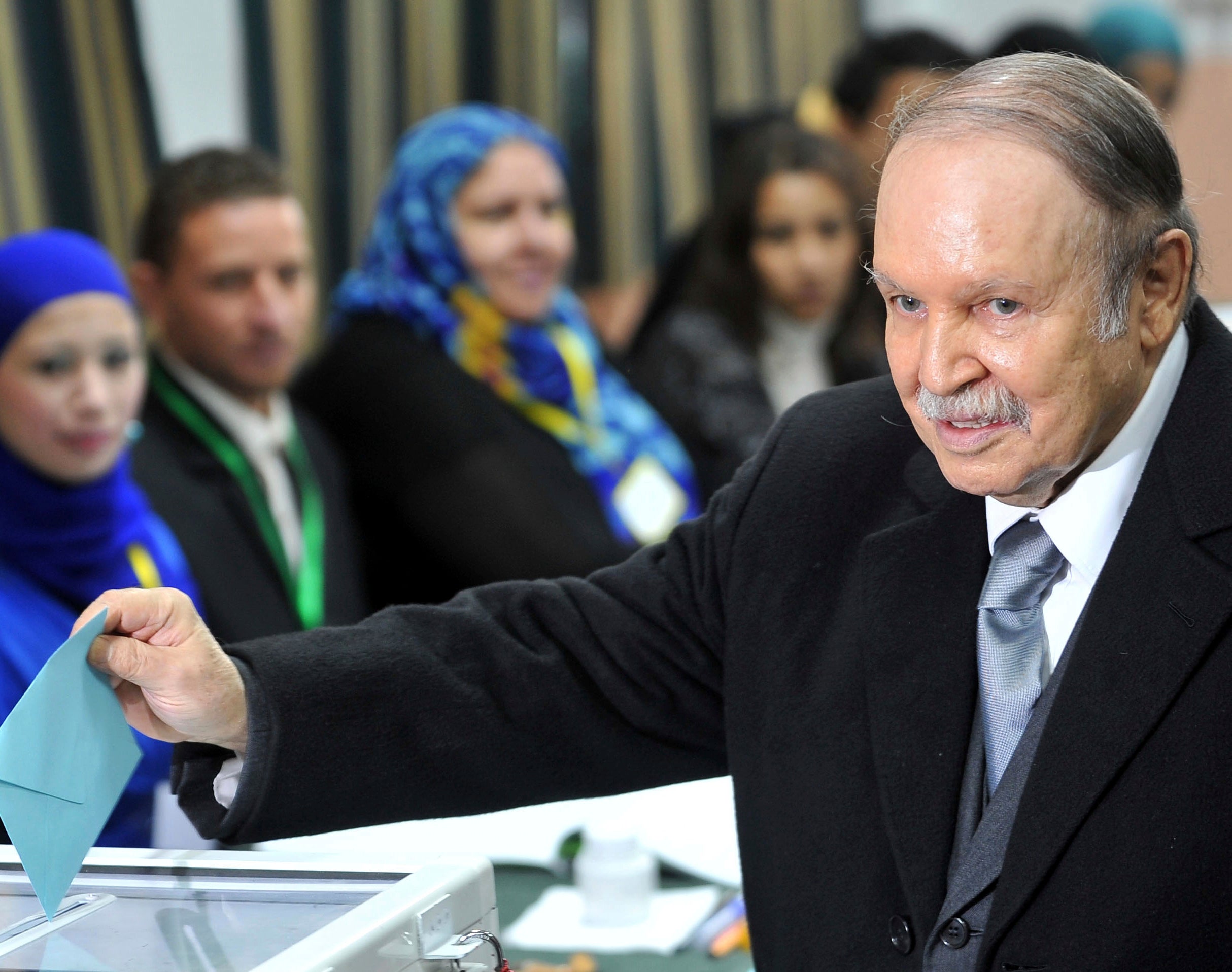Ex-Algerian president Bouteflika, ousted amid protests, dies
Algerian state television says former Algerian President Abdelaziz Bouteflika, who fought for independence from France and was ousted from power in 2019 amid pro-democracy protests, has died at age 84

Your support helps us to tell the story
From reproductive rights to climate change to Big Tech, The Independent is on the ground when the story is developing. Whether it's investigating the financials of Elon Musk's pro-Trump PAC or producing our latest documentary, 'The A Word', which shines a light on the American women fighting for reproductive rights, we know how important it is to parse out the facts from the messaging.
At such a critical moment in US history, we need reporters on the ground. Your donation allows us to keep sending journalists to speak to both sides of the story.
The Independent is trusted by Americans across the entire political spectrum. And unlike many other quality news outlets, we choose not to lock Americans out of our reporting and analysis with paywalls. We believe quality journalism should be available to everyone, paid for by those who can afford it.
Your support makes all the difference.Former Algerian President Abdelaziz Bouteflika who fought for independence from France in the 1950s and 1960s and was ousted amid pro-democracy protests in 2019 after 20 years in power, has died at age 84, state television announced Friday.
The report on ENTV, citing a statement from the office of current President Abdelmadjid Tebboune did not provide the cause of death or information about funeral arrangements.
Bouteflika had suffered a stroke in 2013 that badly weakened him. Concerns about his state of health, kept secret from the Algerian public, helped feed public frustration with his rule that erupted in mass public protests in 2019 that led to his departure.
Earlier in his life, Bouteflika fought for independence from colonial ruler France, successfully negotiated with the terrorist known as Carlos the Jackal to free oil ministers taken hostage in a 1975 attack on OPEC headquarters, and helped reconcile Algerian citizens with each other after a decade of civil war between radical Muslim militants and Algeria’s security forces.
Bouteflika had been known as a wily survivor ever since he fought for independence from France.
He became foreign minister as just age 25, and stood up to the likes of Henry Kissinger in the height of the Cold War. At the time Algeria was a model of doctrinaire socialism tethered to the former Soviet Union and the capital, Algiers was nicknamed “Moscow on the Med.”
In 20 years as president, however, his firebrand past dissolved as age and illness took its toll on the once-charismatic figure. Corruption scandals over infrastructure and hydrocarbon projects also dogged him for years and tarnished many of his closest associates. Many are now in prison.
Born on March 2, 1937 in the town of Oujda near the Morocco border, Bouteflika was among Algeria’s most enduring politicians. In Algeria’s bloody independence war, he commanded the southern Mali front and slipped into France clandestinely in 1961 to contact jailed liberation leaders.
He later embodied the Third World revolutionary who defied the West, acting as a prominent voice for the developing nations movement. He was active in the United Nations, and presided over the U.N. General Assembly in 1974.
Yet Bouteflika stood firmly with the United States in the fight against terrorism after the Sept. 11, 2001 attacks, particularly on intelligence-sharing and military cooperation.
As president starting in 1999, Bouteflika managed to bring stability to a country nearly brought to its knees in the 1990s as an Islamic insurgency left an estimated 200,000 people dead. He unveiled a bold program in 2005 to reconcile a nation fractured by a civil war by persuading Muslim radicals to lay down their arms.
Bouteflika and the country’s armed forces neutralized Algeria’s Islamic insurgency, but then watched it metastasize into a Saharan-wide movement linked to smuggling and kidnapping — and to al-Qaida.
After years in office, Bouteflika’s powerful political machine had the constitution changed to cancel the presidency’s two-term limit. He was then re-elected in 2009 and 2013, amid charges of fraud and a lack of powerful challengers.